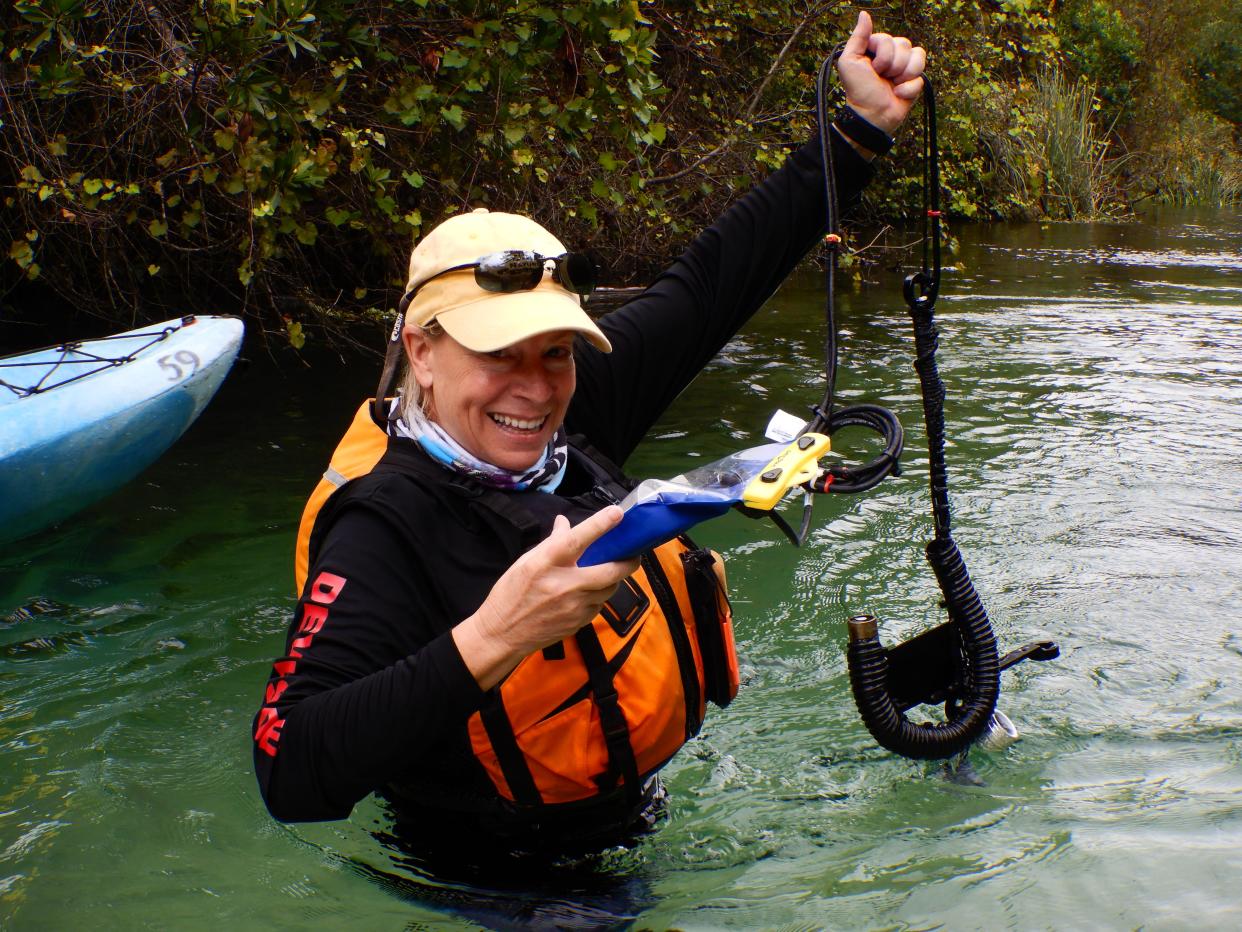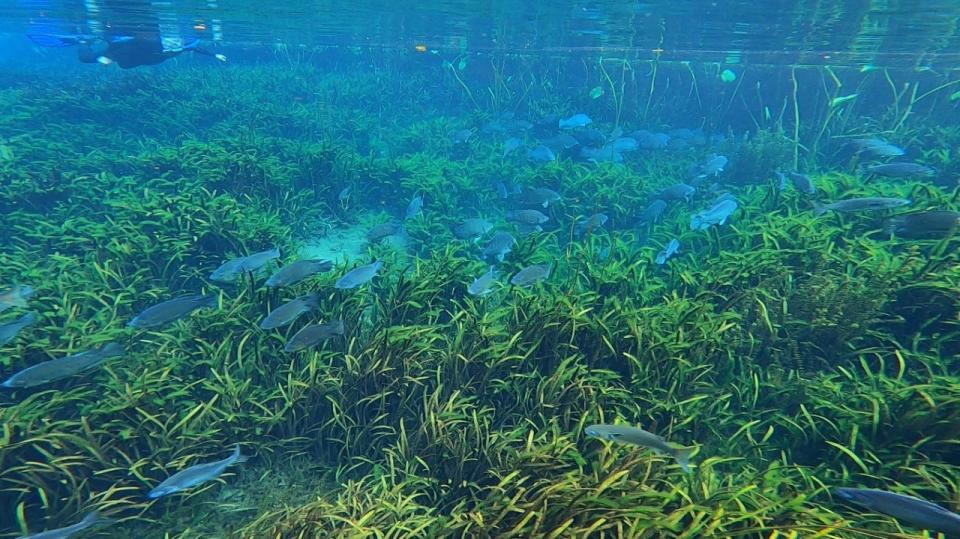SpringsWatch trains citizen scientists to gather data on the health of springs

Six years ago, I stumbled across a newsletter blurb about a program called SpringsWatch. It called for volunteers to help gather water quality data on the Ichetucknee River each month. As a long-time Gainesville resident and kayaking enthusiast, I was familiar with “the Ich” and jumped at the chance to give back to a river that had given me so much joy over the years.
And so began my SpringsWatch journey. In addition to submerging various meter probes along the lower Ichetucknee, we took underwater photos, we documented apple snail eggs on cypress knees and we even snorkeled a stretch of the river to count fish. I was in heaven! The only thing more fun than getting to know this river so intimately was hanging out with other springs enthusiasts equally committed to the task.
Since then, my move to Tampa Bay took me away from my beloved Ichetucknee, but it also introduced me to the Weeki Wachee River where I helped to launch another SpringsWatch group in 2018. This past summer I became the statewide coordinator for SpringsWatch, facilitating the activities of 10 SpringsWatch teams across the state and helping to develop new ones.
The Howard T. Odum Florida Springs Institute launched SpringsWatch in 2011 on the Silver River. Through monthly hands-on monitoring sessions, the program trains citizen scientists to gather springs health data for the institute and environmental agencies across the state.
There are currently 10 active SpringsWatch groups on the Silver, Ichetucknee, Rainbow, Santa Fe, Wakulla, Weeki Wachee, Wekiwa, Homosassa, Jackson Blue and (Panhandle) Ponce de Leon springs systems. An 11th group will be added at Kings Bay in 2022.
During monitoring sessions, volunteers collect data on water temperature, dissolved oxygen, water clarity, submerged aquatic vegetation, wildlife and human activity. We also measure specific conductance, which can indicate water pollution from sources like agriculture, septic tanks, mines and roadways, as well as saltwater intrusion.
Participants gain a rich understanding of how each of these factors impacts the health of these waters. Just their presence at the springs each month gives volunteers an important front-row seat to ongoing developments such as algae blooms and the condition of eelgrasses. That data collected by SpringsWatch volunteers enables the Florida Springs Institute to produce springs report cards and restoration plans for state environmental agencies and the public.
Monthly sessions last from two-to-four hours depending on extent of the area being monitored and the method of travel. Some of the groups perform their tasks from canoes, kayaks or paddleboards. Others use motorized boats or are able to wade into the springs from shore. People who enjoy a more immersive experience don masks, snorkels and fins and participate in fish counts, water clarity measurements with a Secchi disk and other underwater activities.

The most important qualification for SpringsWatch volunteers is an interest in and enthusiasm for springs. SpringsWatch team leaders provide on-the-job training on equipment and procedures. Paddling competency is useful for groups that use this method of transportation and, in some cases, bringing your own canoe, kayak or paddleboard is required.
Why do we do this work?
Cally House, team leader for the Ichetucknee SpringsWatch group, answers this question: “I volunteer for so many reasons — the love of water, the will to protect it and being part of a community that shares these values."
Joan Landis, a volunteer for the Weeki Wachee team, explains her reasons for participating: “As an outdoor enthusiast and environmental educator, I find this work enjoyable and fulfilling. It’s a hands-on way for me to give back to the beautiful Florida springs I recreate on and to contribute to the science that drives our understanding of their health.”
In a state where our water problems often seem insurmountable, SpringsWatch offers people an educational, enjoyable and tangible role to play in their solution. For more information on how you can turn a fun day at the springs into meaningful research that supports them, visit https://floridaspringsinstitute.org/springswatch.
Jill Lingard is the coordinator of SpringsWatch (SpringsWatch@floridaspringsinstitute.org).
Join the conversation
Send a letter to the editor (up to 200 words) to letters@gainesville.com. Letters must include the writer's full name and city of residence. Additional guidelines for submitting letters and longer guest columns can be found at bit.ly/sunopinionguidelines.
Journalism matters. Your support matters.
Get a digital subscription to the Gainesville Sun. Includes must-see content on Gainesville.com and Gatorsports.com, breaking news and updates on all your devices, and access to the Gainesville.com ePaper. Visit www.gainesville.com/subscribenow to sign up.
This article originally appeared on The Gainesville Sun: Jill Lingard: Citizen scientists support springs through SpringsWatch

